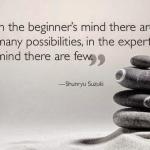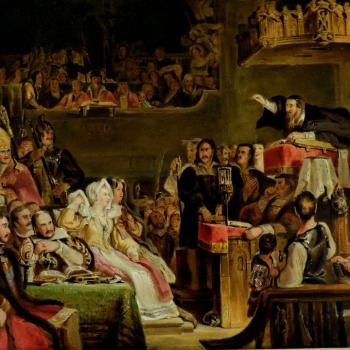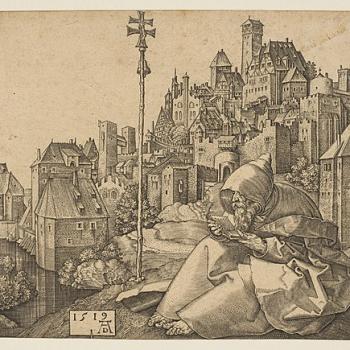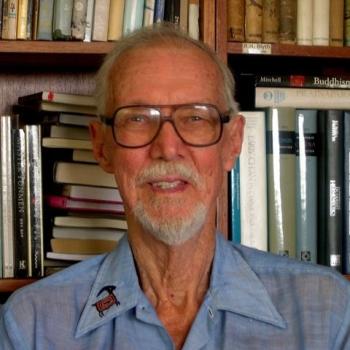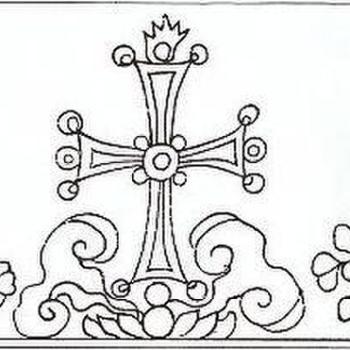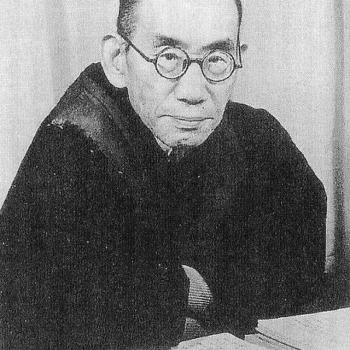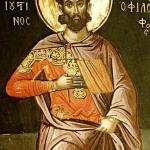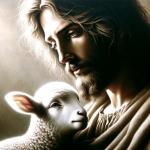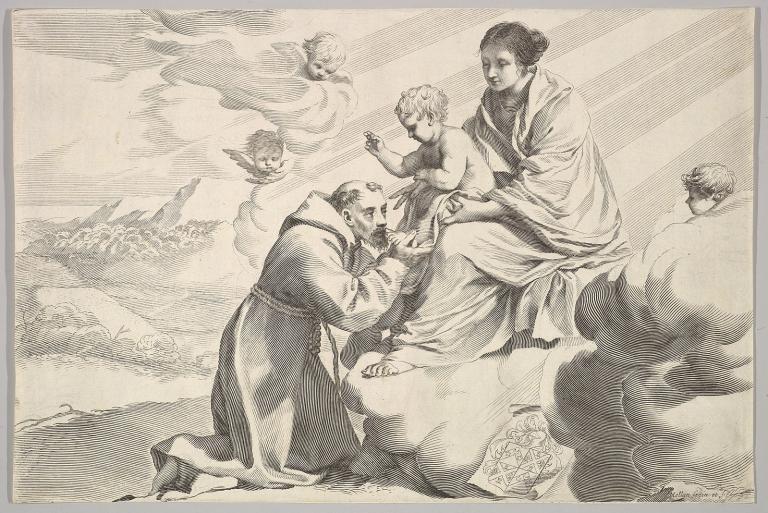
Claude Mellan (17th century)
It was on the 16th of July in 1228 that the Roman Catholic Church formally acknowledged their child Francis of Assisi as a saint.
I’ve always been fascinated by Francis, and over the years when this day, or more often, when his feast, the 4th of October rolls around, I find I have something to share. I’ve been building it for, well, years now. And, honestly, as I seem always to have a new thought, or a small wrinkle, I believe I’ll be continuing for a while yet.
I’m especially interested in two things. His connections, tenuous though they may be to Buddhism. And, his madness, of that divine sort.
The first of these caught my imagination many years ago, when I ran across a book describing someone’s visit to Japan sometime before the second world war. I don’t recall a lot about it, neither title nor author. Except, that is, for one thing. Which I’ve never forgotten. The writer described encountering a small Buddhist society whose members were following an adaptation of the rule of St Francis. I’ve long since lost the book and have never been able to find anything else about this little band, almost certainly consumed in the fires of that second horror of a war.
But who they might have been, their purpose in gathering, and the work they may have taken on, all haunt me to this day.
Francis has been called the only Christian.
Could even be true, depending on how we define such a term. Certainly he is one of the most compelling figures in world spiritual history. Small wonder a pope would take his name as an aspiration for his reign. Servant of the servants of God.
He was crazy for the divine. What the Sufis sometimes call a madzub. The late Western Sufi teacher Wali Ali Meyer once described a madzub as “a human being who has an immediate and intimate relationship with the God reality, and who often is absorbed in that realm and at the same time appears strange, incoherent, eccentric, but somehow deeply invested with power. In some cultures madzubs would be treated as sacred treasures, in others treated as if insane.”
Francis. Pretty much to a “T.”
And, I think he probably was a bit crazed in other ways, as well. As appears often to be the case, the deeper things about us bleed across many aspects of our being. I guess that’s why they say we human beings are messy…
One of the recurring themes of spirituality in our time and place is the idea of crazy wisdom, often with capitals, Crazy Wisdom. It is meant to describe spiritual teachers whose actions defy common assumptions. In practice it has turned out, maybe more often than not, as an excuse for bad behavior.
But at the same time there are madzubs, there is a crazy wisdom.
And, with all of it, all of it, Francis was among the most compelling of the generations that have claimed Jesus as their Lord.
He had courage most of us can barely conceive of. And grace. And a beauty of possibility.
And he has touched many hearts beyond his particular communion. Okay, and beyond its bounds…
Rummaging around the web I found an article by a Franciscan friar, Stephen Lynch, who wrote “A famous Buddhist monk, Professor Yokoi, rector of the Buddhist Zen Institute of Komazawa University in Tokyo, felt St. Francis of Assisi exemplified the three fundamental ideals of Buddhism. He felt that St. Francis was a man without covetousness, without anger, and without delusion.”
Without greed, without hatred, without delusions…
That definitely works for me. Well, it works for me mostly.
In Buddhist pop psychology we humans find we are woven out of the demons of covetousness, clinging anger, and delusive certainties. The catch, which I guess makes its more than “pop,” is we do not transmogrify into different creatures. Rather we open other faces of those entities, generosity, clarity, and curiosity.
Hence the magic of that English word “practice.” We practice as in do. But we also practice as in prepare.
To be human is to be aspirational. As we Zen practitioners in the west are fond of saying in paraphrase of our Thirteenth century master, Eihei Dogen, our life and our practice is “one continuous mistake.”
To be human is aspirational. And maybe more than a little crazy. It is a turning toward the world, into our own hearts and minds, into the mess that is community, that is to be a part of this world. And in this work of turning into the world as the heart of our spiritual practice, I find Francis enormously helpful.
Kind of crazy. Did I say that? Francis and his divine madness.
Beyond greed and hate and delusion…
May we all share in that madness. A divine madness. May it become the great season of our lives.
Who knows? It might even be our saving…



